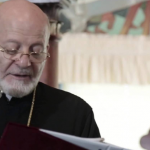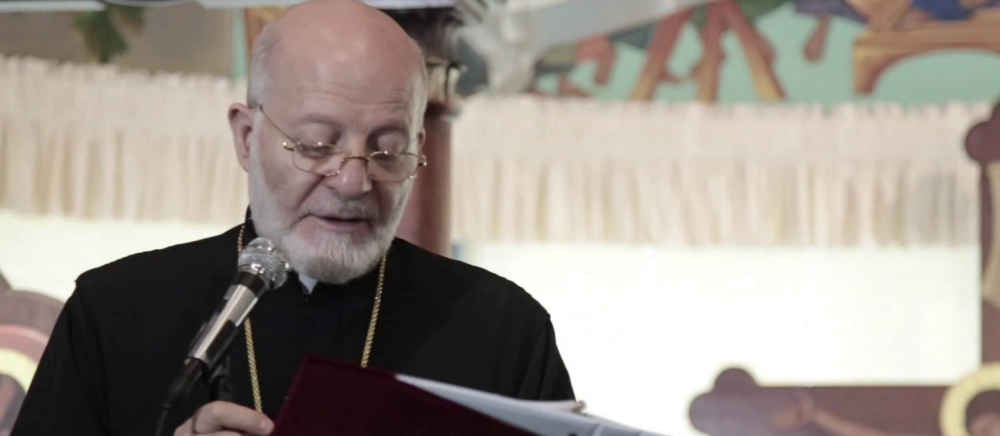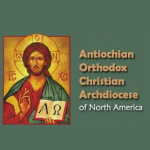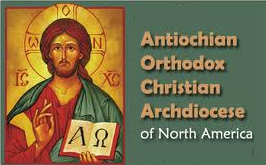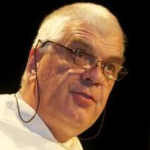Deprecated: trim(): Passing null to parameter #1 ($string) of type string is deprecated in
/home/aoiusa/public_html/wp-content/plugins/sexybookmarks/public.php on line
388
Deprecated: trim(): Passing null to parameter #1 ($string) of type string is deprecated in
/home/aoiusa/public_html/wp-content/plugins/sexybookmarks/public.php on line
394
Deprecated: trim(): Passing null to parameter #1 ($string) of type string is deprecated in
/home/aoiusa/public_html/wp-content/plugins/sexybookmarks/public.php on line
400
 Source: Witherspoon Institute
Source: Witherspoon Institute
By Sherif Girgis, Ryan T. Anderson and Robert P. George within Marriage
Originally published June 27, 2013.
What happened yesterday at the courthouse matters, and we must keep up our witness to the truth about marriage, by word and deed, until it is safely beyond judicial overreach.
Here’s the least reported fact about yesterday’s rulings on marriage: the Supreme Court refused to give Ted Olson and David Boies, the lawyers suing to overturn Prop 8, what they wanted. The Court refused to redefine marriage for the entire nation. The Court refused to “discover” a constitutional right to same-sex marriage. Citizens and their elected representatives remain free to discuss, debate, and vote about marriage policy in all fifty states. Citizens and their elected representatives still have the right to define marriage in civil law as the union of one man and one woman.
And we should continue doing so. Already, in the wake of yesterday’s ruling, Governor Mike Pence of Indiana has called on his state to pass a constitutional amendment defining marriage as the union of a man and a woman. Marriage matters for children, for civil society, and for limited government. Marriage is the institution that unites a man and a woman as husband and wife to be father and mother to any children that their union produces. And that’s why the government is in the marriage business. Not because it cares about adult romance, but because it cares about the rights of children.
If you believe, as we do, in the importance to children and to society of the marriage-based family, then of course you were hoping for different results in yesterday’s marriage cases. But you probably also put your trust in the institutions of civil society—in that vast arena between man and state which is the real stage for human development. And in that case, you never expected a court of law to do our work for us, to rescue a marriage culture that has been wounded for decades by cohabitation, out-of-wedlock child-bearing, and misguided policies like no-fault divorce. Your only question at 10:00 AM yesterday was whether the Supreme Court would leave us the political and cultural space to rebuild that culture, or get in the way.
The answer was that the Court would leave us some space—for now. Five justices in United States v. Windsor have seen fit to put the republic on notice. While coy on state marriage laws, they have held that we the people—through overwhelming majorities in Congress and a Democratic President—somehow violated the Constitution in enacting the Defense of Marriage Act.
Here we’ll describe just what the Court said and didn’t, what it got wrong, what that means in practice, and where it leaves the fight for a sound marriage culture.
What Happened in Windsor and Perry
In United States v. Windsor, the Court heard a challenge to Section 3 of the federal Defense of Marriage Act (DOMA), which defined marriage as a male-female union for federal purposes created in federal law. Justice Kennedy and the four more liberal justices—Kagan, Sotomayor, Breyer, and Ginsburg—struck down that section. Dissents were filed by Chief Justice Roberts, Justice Scalia, and Justice Alito, joined by Justice Thomas.
In the second case, Perry v. Hollingsworth, the Court considered Proposition 8, the referendum in which California citizens amended their constitution to preserve conjugal marriage in state law. The California attorney general, normally responsible for defending such laws, refused in this case, so Prop 8’s proponents stepped in. But the Court ruled that they had no standing—no legal right—to do so. Chief Justice Roberts wrote the majority opinion, joined by Justices Scalia, Ginsburg, Breyer, and Kagan. Justice Kennedy dissented, joined by Justices Alito, Thomas, and Sotomayor.
What That Does—and Doesn’t—Mean
The Supreme Court did not strike down all of DOMA, just Section 3. It left intact Section 2, which prevents the states from being forced to recognize other states’ same-sex marriages. This leads to the broader point that not a single justice said anything against the validity of any state marriage policy, including state conjugal marriage laws. That means, of course, that not a single justice voted to strike down Prop 8. Instead, the Perry majority ordered the Ninth Circuit Court to set aside (“vacate”) its own ruling against Prop 8.
That leaves us with some confusion as to the status of Judge Vaughn Walker’s district court decision that ruled against Prop 8. Some scholars think Walker’s decision must be vacated, too. Each same-sex couple seeking to marry in California would then have to sue for a special kind of court relief, applicable only to that couple. Others think that Judge Walker’s decision would stand, but they debate whether it would apply to all state officials or only the county clerks named in the suit. Governor Jerry Brown, for his part, has directed all county clerks to begin issuing same-sex marriage licenses. This will surely be challenged in state court by the proponents of Prop 8.
Trouble Spots
The Court ruled that Prop 8 proponents were not the right party to bring the suit. Wherever vague and conflicting standing doctrine points, its application here eviscerated the California referendum process. That process was designed to let citizens pass laws, and amend their constitution, to check and balance government officials. If those same officials can effectively veto provisions of the state constitution by refusing to enforce and then refusing to defend them, the point of the referendum process is defeated.
Meanwhile, it is hard to criticize the basis of the DOMA case because it is hard even to say what that basis is. The opinion begins with a learned reflection on how family law has historically (but not exclusively) been left to states. Yet it refuses to strike DOMA down just on that ground. After all, DOMA leaves state family law intact as ever. It controls only how the federal government allocates federal money and benefits when it comes to marriage. Congress can’t impose on the states in this matter, to be sure; but then why would the states be able to impose on Congress?
The Court also doesn’t rest its decision just on equal protection principles, though these too are discussed. If equality required Congress to cover same-sex partnerships with its marriage-related laws, wouldn’t the same be true of the states? Yet the majority claims to reach no decision on the latter.
Finally, the Court doesn’t just rely on the principle that the government can’t deny liberty without due process. On the Court’s own accounting, that rule protects substantive rights only when they are deeply rooted in our nation’s history and traditions. But as of 13 years ago, no jurisdiction on our planet, much less in our nation, had enacted same-sex civil marriage.
So if not federalism, or equality, or due process, then what? What is the basis for the Court’s ruling? As Justice Scalia points out, the Court itself won’t say. It discusses each of these principles before refusing to rely squarely on any. As for how they might stretch, multiply, merge, or pile up to support the Court’s holding anyway, several theories have arisen. But even some who cheer the decision have called its reasoning less than coherent or satisfying.
Justice Kennedy, for his part, is just sure the Constitution prevents the federal government from treating opposite- and same-sex state marriages differently. All he knows, in other words, is that Section 3 of DOMA must go.
In fact, we would have been better off had he stopped there. DOMA, he goes on to insist, must have been motivated by a “bare desire to harm,” or “to disparage and to injure.” Its sole purpose and effect is to “impose inequality,” to deny “equal dignity,” to “humiliate.” He infers all this from a few passages in its legislative history about defending traditional morality and the institution of traditional marriage, from its effects, and from the act’s title. Most importantly—and scandalously, given his obligations as a judge—Kennedy does so with nothing more than passing reference to arguments made for DOMA in particular, and conjugal marriage in general. How else could his reasoning leap from the people’s wish to support a certain vision of marriage, to their alleged desire to harm and humiliate those otherwise inclined?
The effect of this refusal to engage counterarguments is the elevation of a rash accusation to the dignity of a legal principle: DOMA’s supporters—including, one supposes, 342 representatives, 85 senators, and President Clinton—must have been motivated by ill will.
The Heart of the Problem—and Solution
The bottom line? The defense of conjugal marriage matters now more than ever. It won’t be long before new challengers come. But whether they succeed may depend on how vigorously the democratic debate is joined that Justice Alito describes in his clear-eyed dissent.
In his DOMA dissent, Justice Alito goes out of his way to frame the central issue of both cases: They involve, he writes, a contest between two visions of marriage—what he calls the “conjugal” and “consent-based” views. He cites our book as exemplifying the conjugal view of marriage as (in his summary) a “comprehensive, exclusive, permanent union that is intrinsically ordered to producing children.” He cites others, like Jonathan Rauch, for the idea that marriage is a certain commitment marked by emotional union. And he explains that the Constitution is silent on which of these substantive, morally controversial visions of marriage is correct. So the Court, he says, should decline to decide; it should defer to democratic debate.
The Court is likelier to defer to democratic debate if it believes there’s a genuine debate to defer to. If the conjugal view’s supporters are instead cowed into silence, or convinced to forfeit on the ground that loss is “inevitable” anyway, five justices will see no obstacle to imposing the consent-based view nationwide.
Never mind that this emotional companionship rationale entails that moms and dads are interchangeable. Never mind that it makes nonsense of other norms of marriage, unable as it is to justify the limits of permanence, exclusivity, or monogamy. Never mind that by its logic, the law’s “discrimination” against multiple-partner bonds, too, would embody a “bare desire to harm” those most satisfied by other bonds.
The point is that by assuming the consent-based view, the majority in the DOMA decision took sides in the very debate it was claiming to sidestep out of respect for state sovereignty. Had the justices taken the trouble even to describe conjugal marriage supporters’ reasons in their own terms, it would have become obvious that these weren’t bigots but garden-variety political opponents.
So our first task is to develop and multiply our artistic, pastoral, and reasoned defenses of the conjugal view as the truth about marriage, and to make ever plainer our policy reasons for enacting it. That will make it more awkward for the justices to apply their DOMA reasoning in a future challenge to state marriage laws. Only conjugal marriage supporters can decide—by what they do next—whether the Court, when it next returns to marriage, will find a policy dispute lively enough to demand its deference.
Our second task is to take a long—and broad—view. Whenever and however the legal battle is won, our work will have only begun. Despite the Court’s libels against half their fellow citizens, this debate is not about “the bare desire to harm” any group. Indeed, for conjugal marriage supporters it is not, ultimately, about homosexuality at all. It is about marriage. The proposal to define marriage as nothing more specific than your top emotional bond is one way to erode its stabilizing norms, so crucial for family life and the common good.
But it is just one way.
Before same-sex anything was at stake, our society was already busy dismantling its own foundation, by innovations like no-fault divorce and by a thousand daily decisions to dishonor the norms of marriage that make it apt for family life. Atomization results from these forms of family breakdown—and from the superficially appealing idea that emotional closeness is all that sets marriage apart, which makes it gauche to seek true companionship and love in non-marital bonds. Part of rebuilding marriage will be responding to that atomization—reaching out to friends and neighbors suffering broken hearts or homes, or loneliness, whatever the cause. That, too, will make the conjugal view of marriage shine more brightly as a viable social option.
In short, winning the legal battle against redefinition is only a condition of winning the political one. And winning the political one is only a condition (though necessary) for rebuilding a healthy culture.
Yesterday’s most important developments in that broadest struggle, of course, did not happen at a marble courthouse in Washington, but in a million minds and hearts and households across the country, as people chose in ways great and small to honor—or not—the demanding ideals of marriage and family, and community. As champions of civil society, we always knew that. Yet it would be naive to deny the law’s effect on those ideals. That’s why the courthouse matters—and why we must keep up our witness to the truth about marriage, by word and deed, until it is safely beyond judicial overreach.
Sherif Girgis is a Ph.D. candidate in philosophy at Princeton and a J.D. candidate at Yale Law School. Ryan T. Anderson is a William E. Simon Fellow at the Heritage Foundation and Editor of Public Discourse. Robert P. George is McCormick Professor of Jurisprudence at Princeton University. They are co-authors of What Is Marriage? Man and Woman: A Defense.
